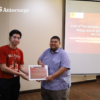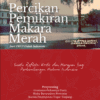Indonesia is the largest archipelagic state with the longest coastal line in the world stretching between Asia and Australia. The territorial waters of Indonesia are naturally one of the world’s most strategic sea lanes which for centuries has been a cross-continent passage connecting Pacific and Indian Oceans.
The sea territory of Indonesia is open for international innocent passage. However, there are cases of passing foreign ships arrested by local authorities for illegal anchoring.
Continuous and Expeditious Principles
In alignment with the United Nations Convention on the Law of the Sea 1982 (UNCLOS), the right of innocent passage through the Indonesian archipelago is guaranteed under the Indonesian Law No. 6 of 1996 (Law No. 6/1996). Such law allows foreign ships to sail through within the Indonesian waters so long the passage is prejudicial to peace, good order, or security. The Law No. 6/1996 also stipulates that innocent passage within Indonesian waters must be continuous, expeditious, direct, and conducted as quickly as possible.
The implementation of the right of innocent passage in Indonesia is regulated further under Government Regulation No. 37 of 2002 (GR No. 37/2002) and Law No. 17 of 2008 (Law No. 17/2008).
Anchoring Rules
In line with the above principles, certain restrictions of the right of innocent passage are regulated in the GR No. 37/2002 and Law No. 17/2008. Prohibition to stop, drop anchor, or loiter when passing the Indonesian waters are amongst such restrictions.
Aside from the foregoing, foreign ships sailing through Indonesia’s sea territory are not allowed to:
- transport passengers and/or goods between islands or ports within Indonesian territorial waters.
- dispose waste and issue exhaust gas that exceeds a threshold.
- deviate more than 25 nautical miles to either side of the sea axis line.
- covert transmissions, interfere telecommunications systems, and communicate directly with an unauthorized person or group of persons.
- conduct fishing operations (foreign fishing ships must stow all their fishing equipment within the hold).
- load or unload persons or currency to or from a ship in a manner that contravenes the laws.
- cause disturbance or damage to navigational facilities or submarine cables or pipes.
- pass too close to the prohibited zone (500 meters around exploration or exploitation of living or non-living natural resources installations).
Sanctions
Under the Law No. 17/2008 violation to the anchoring rules is threatened with a maximum of 1 year imprisonment and fine up to IDR200,000,000.00 (around USD13,300.00).
Foreign ships violating the anchoring rules are subject to an arrest. Indonesian maritime authorities including the navy, maritime security agency (coast guard), marine police, and port authority are authorized to arrest the violating foreign ships.
Arrest Precedents
In 2021, Indonesian Navy arrested a Vietnamese ship for dropping anchor without permit in Tanjung Berakit (near Singapore territorial waters). The Batam District Court sentenced the master in prison for 15 days and to pay fine of IDR25,000,000.00 (around USD1,667.00).
In the same year, the Indonesian Coast Guard arrested Iranian and Panamanian ships in South Natuna Sea (around the east of the Malay Peninsula). They were arrested for collectively committing violations of dropping anchor without a permit, carrying out ship-to-ship oil transfers, and dumping waste. The master of both ships was sentenced to 1 year in prison with 2 years of probation and the Panamanian master was additionally fined in the amount of IDR2,000,000,000.00 (around USD133,420.00) for dumping waste.
Exemptions
The anchoring rules are exempted in the case of distress situation, in the event of disaster, force majeure, or when rendering assistance to a person or a ship experiencing a disaster is necessary. Any foreign ship encounters such circumstances must immediately make contact and report to the relevant Indonesian authorities to obtain permission for anchoring.
This publication is a summary overview of Indonesian laws and regulations prepared by Indrawan Darsyah Santoso team for discussion purposes only. The summary captures selected sections of the regulations and is not intended to be relied upon as legal advice. For further information on the above subject, please contact our team.
For further information on the above subject, please contact:
Immanuel A. Indrawan
Partner
iindrawan@idsattorneys.com
Back to Insights





